- Home
- William Bell
Just Some Stuff I Wrote Page 9
Just Some Stuff I Wrote Read online
Page 9
I nodded. “That’d be great. And one other thing. Maddie is going to ask you to the prom.”
His mouth dropped open, and for the first time since I’d met him, Chumley betrayed surprise. “The prom? Me?” As fast as he’d let his mask slip, he had it back in place. “Indeed?” he said.
“Yeah, indeed. And listen, old sport, old chap, old thing, do yourself a favour.”
“What would that be?”
“Say yes.”
the promise
(for Molly Macdonald)
FROM: Cole [email protected]
SUBJECT: bulletin from brother
TO : Marci [email protected]
DATE: April 4, 1:48 PM EDT
Dear Marci,
God. I’m here, finally. Sweaty and exhausted, joints and muscles screaming in protest. What a trip. Bad enough that Shel gave me one day’s notice, with no time to assemble the proper gear for a job in a place I’ve never been and know nothing about. The plane was late leaving the city, which made me miss my connecting flight, which meant a two-hour wait in the airport lounge, jet-lagged and rumpled, before the short hop to Edinburgh.
Anyway, here I am, at the hotel, a nice little place I’ll tell you about later. Just wanted you to know I’ve arrived safe and (almost) sound.
—Cole
PS I have great news!
FROM: Cole Ingram [email protected]
SUBJECT: the good news
TO : Marci [email protected]
DATE: April 5, 2:43 AM EDT
Hi.
It’s past midnight. Had a little nap before I cabbed into the city for dinner. (The hotel is on the Comiston Road south of the city’s centre. The room is tiny; Shel warned me, but I didn’t think he meant this small.) Went to bed early, but woke up in the middle of the night. My body’s clock is off by five hours.
So: the news. Shel and I were settled in (two hours late) at cruising altitude, holding our overpriced drinks, when he turned to me and suggested, Let’s have a toast. He raised his glass, his mammoth diamond ring glinting, and said, To our new director.
I choked on my drink and spluttered, Excuse me? Shel grinned. Turns out I’m not a “location scout,” meaning glorified gofer, any more. They liked the trailer I did (all five seconds of it) for the latest Icebitch video. (You know, Adele Deigle, who sings in underwear and chains? Who pretends she writes her own songs, but doesn’t?) They’ve always appreciated my eye for atmosphere and detail when I search out locations—so much so they never wanted to move me. But they realize they have to give me a chance or they’re going to lose me. I’m talented. I’m dedicated. Great future in rock videos. Blah, blah.
I was thinking, as Shel swallowed most of his scotch in one gulp, Who died? Whose shoes am I being asked to fill until they can get somebody else? I asked Shel exactly that.
Nobody died, he laughed. What’s this about shoes? We want you to direct the kickoff video for “Spirit and Stone.” There ought to be lots of great locations in an old city like Edinburgh. All those cemeteries. Castles. Donjons, maybe. Torture machines. Now, instead of just finding great venues for us, you’ll run the show.
So, your big bro is a director now! This could be the break I’ve been waiting for, after years of slogging. Okay, it’s not the world-changing documentaries I dreamed of making back in high school (and ever since). But who knows, maybe rock videos are the first step toward bigger things. Let’s hope. God, what a business! No wonder it drives me nuts sometimes.
—Love, Cole
PS I’ll try really hard to be home in time for your birthday. You made me swear to it, but things have changed.
FROM Cole Ingram [email protected]
SUBJECT wired
TO Marci [email protected]
DATE April 5, 8:32 PM EDT
Hi, Marci,
Crazy day today. I’m exhausted, exhilarated, wired on coffee, buzzing with adrenaline—and scared. Stop being dramatic, I hear you saying. Read on, sister.
Spent a couple of hours last night riffling through my tour books and visit-Scotland pamphlets. Got up early and took a cab across the Firth of Forth to Dunfermline. There’s a cathedral there with a ruined abbey, and that was my destination.
All this is hush-hush right now, so don’t breathe a word, but Adele is going to do a one-off collaboration CD with Ghost Girls, one of the hot new ghoul bands. Most of their songs are about death in some way. Now, dear sister, kindly return your rolled eyes to the forward position. Remove the sneer from your face. You, of the classical piano. The gurus at the label think Adele’s feisty in-your-face attitude and GG’s neo-gothic mysticism will be a dynamite mix. The lead song is “Don’t Need God No More.” It’s going to make a lot of noise—in more ways than one. A real put-down of faith and religion. Hence the tumbledown ancient abbey. Sort of symbolizes the theme of the song. Subtle, eh?
Anyway, it was a sunny day and the abbey ruins, with their carefully tended lawns and flower beds and walkways, were, well, too nice. But given the right weather and angles, along with the usual digital magic on the computer, we should be able to do something for Adele. I spent the better part of the day taking pix while a peacock dragged his fan across the lawn and squawked.
In the late afternoon I took the cab back into Edinburgh where I had a cappuccino and made a few notes on my map. I was hunting for more churches, because churches mean cemeteries, and I wanted lots more than the abbey ruins.
Turns out there were more burial grounds within a mile radius of my cappuccino than you could shake a bone at. St. Cuthbert’s graveyard had lots of potential but it’s too, I don’t know, peaceful. Refined, almost. Far down along Princes Street, Calton Cemetery, on the edge of the vale, walled, gravel paths and grass, large headstones, tombs and something I wasn’t familiar with, mural monuments. That’s a grave with a part of the perimeter wall as its headstone.
Anyway, Calton is too small, so, more walking under a sky that had gone all cloudy and grey, more cemeteries, until I crossed the George Four bridge and stumbled upon the Greyfriars Kirkyard. Kirk meaning church. And this place was a treasure trove.
If you’d tried to design the perfect venue for a horror movie—or a ghoul-rock video—you couldn’t do better. The place was established in 1532! Like Calton, it’s enclosed by a wall. You turn off Candlemakers Row, pass under a stone arch and step back almost 500 years. The ancient church hunkers on the brow of a low hill.
I was alone. I could hear light traffic out on Candlemakers Row, and disembodied voices floating in from somewhere. Long shadows striped the gravel paths and grass—all soaked from an afternoon shower. Right away, I felt in my bones—so to speak—that there was something that made Greyfriars special, in some way unlike the other burial yards I’d visited that day. A sort of calm. A sense of, I don’t know, expectation.
And a feeling of doom.
No, I’m not being dramatic.
Maybe I was just tired from a long day’s research, but suddenly I had to struggle for breath, as if something was squeezing my chest. The place was nothing like cemeteries at home, with neat rows of headstones and a park-like atmosphere that tries too hard to deny the fact that dead people are decomposing under your feet. In Greyfriars, death is triumphant. It’s right in your face. It has attitude. There are skull-and-crossbones and skeletons carved on some monuments—and they’re grinning, as if to say, Ha! Gotcha! There are devils’ faces, leering, with mouths wide open, tongues sticking out. A chubby baby angel with a skull on its knee (I’m not kidding, Marci). The torso of a crowned skeleton, rib cage jutting out from under a ragged shawl.
I began to explore, with every step firming my decision that this was the locale for GG’s video. I took stills and clips as I went, and, as the afternoon gave in to evening, got the best of all horror effects, ground mist. I strolled slowly along the sloping path to the right of the church. The gravel crunched underfoot, the thickening mist flowed around my legs, cold and damp, and even in the fla
t light the moisture on the tombstones glistened. My stomach churned. The feeling that I was being watched crept up my spine.
Recording the scene as I moved along, I worked my way behind the church and up a path next to the wall monuments. A devil’s face glowered malevolently, as if to say, What are you doing here? On the higher ground, the fog was a little thinner. I turned around and captured the lower half of the graveyard on video. Then I trudged up toward the southwest corner of the cemetery.
I could make out a wrought-iron fence, chained and padlocked. Behind it, an open space, about ten metres wide, a sort of corridor between tombs. Was it the mist, or was something moving there? I cursed. On the other side of the fence lay a bundle of clothing or something, ruining the shot. I stepped nearer to remove it. There was a small sign on the fence, but I couldn’t quite make out the words. A chill breeze stirred the fog, and I could see the object more clearly.
It wasn’t a bundle of clothes. It was a man, stretched out on the bare wet ground.
I inched closer. The attitude in which he lay, the outstretched legs and arms, the absolute stillness of him, told me he was dead. He was bearded, his face filthy, hair matted with mud. His cheek was mashed against the bars, and his open eyes seemed to stare through them. Specks of dirt were stuck on one eyeball. His heavy boots had gouged trenches in the soil. His arms stretched through the bars, and his fingers had clawed furrows in the dirt. It seemed that he had been so terrified by something that he had tried to scrabble between the bars.
The horror etched on his face sent a chill creeping into my bones. I snapped his picture before I turned and ran.
Within two minutes I was out on the street, gasping for breath. A bus churned past in the fading light. Car tires hissed on the damp pavement. A woman hustled by, pushing a baby carriage. I pulled out my phone and keyed in the emergency number, reported the body and the location to the operator, who took my name and told me to stay put. No chance. A few minutes later, I hailed a passing taxi and I fled to the warmth and light of my hotel.
FROM: Cole Ingram [email protected]
SUBJECT: strange!
TO : Marci [email protected]
DATE: April 6, 4:27 PM EDT
Dear Marci,
The police just left.
I spent last night thrashing around in my bed, trying to make myself fall asleep, pushing thoughts and images out of my head, telling myself I wasn’t afraid. Marci, I’ve seen dead bodies before—on TV, at our parents’ funerals. But as bad as that was, it was nothing like the corpse I stumbled onto at Greyfriars, with his limbs outstretched and reaching, his face twisted in horror. I got up early and went for a walk to clear my head. And as I walked, I wondered, why had no one responded to my emergency call?
I was in my room, staring out at the rain, calming my nerves with a cup of strong tea, when the knock came. I opened the door to find a skinny guy, jacket and tie under his raincoat, the smell of cigarettes on his clothes. Inspector Braid, he said, flashing his ID. I let him in and gave him the only chair in the room, while I perched awkwardly on the edge of the bed.
He asked to see my passport, inquired politely how I liked Edinburgh. What did I do for a living? Must be an interesting occupation, working with recording stars, travelling, making videos. I had the feeling he already knew what I was telling him, that he’d checked up on me before coming.
All the time he was making small talk, his eyes flicked around the room like a housefly that couldn’t decide where to land. So you’re here researching locations for your work? he said, even though we’d been over all that. Yes, I told him, again. For music celebrities, he said. Yeah, you could call them that, I said, wondering what this guy would think of Adele with her eyebrow rings and nose studs and skimpy clothing.
Then, as his eyes lit on the cameras on my dresser top, he said, I suppose a bit of publicity wouldn’t come amiss. Focus attention on your project, like.
Publicity? I asked.
He twiddled one of the buttons on the sleeve of his jacket. What with your, er, theme, as it were, so much like our City of the Dead here in Edinburgh.
You’ve lost me, I told him.
You’ve not heard of the City of the Dead? The underground tours through ancient passageways and cellars along the Royal Mile?
I noticed some ads on the sides of buses, I said. I thought it was a musical or a movie.
No, it’s a tourist attraction, he sniffed. The guided walk through Greyfriars Kirkyard is the most popular part. All that nonsense about hauntings and so on. You’ve not heard of it, then?
Look, I said, confused and a little ticked, I don’t know what you’re talking about. I thought you were here about my phone call. The, um, body I saw.
Well, he said with a thin smile, that’s just the rub, Mr. Ingram. It seems there is no body.
My cup bonked the rug between my feet. What! I heard myself exclaim.
The smarmy grin fell away and his voice firmed up. A thorough search of the area turned up nothing, he said, but an old black coat and a few empty beer bottles—probably left behind by youngsters. They sometimes like to have the odd party at Greyfriars. I want to emphasize, Mr. Ingram, that we don’t take mischievous reports lightly. We—
You think my call was a hoax? I cut in. That I made it all up?
I’m telling you there was nothing there.
I know what I saw, I insisted. The man was dead. He couldn’t have just gotten up and walked away.
The cop heaved himself out of the chair, buttoned his jacket and raincoat. Well, he said wearily, we’ll put it down to your overactive artistic imagination, shall we?
And he left. End of investigation.
Shaking with anger, I retrieved my tea mug from the floor and poured some scotch. Had I imagined the whole thing? I went to the window and watched the cop drive away in the rain.
FROM: Cole Ingram [email protected]
SUBJECT: doubts
TO : Marci [email protected]
DATE: April 7, 6:45 AM EDT
ATTACHMENTS: corpse?.jpg
It took only a few minutes to download the stills and movie clips from my cameras to the laptop.
I’m good at my work, I know that. My pictures captured the menacing mood of Greyfriars so well I began to fidget as I went through them, to hear imaginary noises in the walls and at the window. I relived the clammy afternoon, the spooky mist, the silent graves, the atmosphere of doom. The sense of being watched—more than that—inspected by the doleful marble eyes of the devils and angels on the tombs.
I examined the shots closely—the pan of the whole kirkyard, the wall monuments grey and wet in the mist—and noticed something that hadn’t registered when I had the camera up to my eye. Carved into one of the monuments was some text under the words Covenanters’ Memorial. Who or what was a covenanter? I asked myself.
Then came the pix of the iron bars, the long corridor that stretched between the mural tombs into the mist, the innocuous sign, white letters on black, illegible in fog and fading light. I zoomed in on the sign. Covenanters’ Prison, it said. Who ever heard of a jail in a cemetery?
The next shot showed the man lying stiff as marble, face jammed against the bars, arms desperately reaching, fingers clawing the dirt.
He was there, all right.
Or was he? I sat back, took a few deep breaths, shook the tension from my shoulders, tried to look at the photo objectively, as if I was seeing it for the first time. I know a camera lens can be stark in its truthfulness, but it can also give a perspective that will lead to different conclusions. Change the angle, change the light, and you have a different effect. And I had to admit that, if I asked a stranger, What do you see here? he might say, A body, but he might also admit, I can’t say for sure.
Had someone played a trick on me? Some of the kids the cop had mentioned? Was it a drunk, sleeping it off? Inspector Braid had insisted that there was no cadaver.
He was wrong. The rictus of horror on the corpse’s face
, the dirt on his eyeball, couldn’t be denied.
I tried a digital examination of the photo, enlarging and diminishing sections, but I got nowhere. I threw myself on the bed. Why was I doubting my own senses? I asked myself. When I was in Greyfriars I had seen the corpse of a man who died a terrible, painful death.
Then I remembered the cop had also mentioned hauntings.
Marci, I can see your eyes rolling again, and hear that exasperated Tsk! of yours. Just bear with me here. What could it hurt, I asked myself, to look into the matter?
So I’m going on line to do some searching.
FROM: Cole Ingram [email protected]
SUBJECT: discoveries
TO: Marci [email protected]
DATE: April 7, 10:12 AM EDT
ATTACHMENTS: martyrsmonument.jpg
Dear Marci,
Had the “fry-up” in cholesterol city, the hotel dining room. I was starved. I’d stayed up late doing research, gotten up early to continue.
Here’s what I found out. I started with “Covenanters.” There was lots of info on the Net, and most of the websites were right here in Scotland. Some condensed history here, so hang on. King Charles I of Scotland wanted to continue the work begun by his father, James, in amalgamating the Church of Scotland with the Church of England, so in 1637 he had the Book of Common Prayer introduced and proclaimed that anyone who didn’t follow it was an enemy of the state. Punishment? You guessed it. Death.
It seems strange nowadays, but back then the king thought he ruled by God’s permission (and therefore was always right), and the Church was “established,” i.e., the official religion of the country with the king as its head. Catholics and other dissenting Protestants like the Presbyterians did not accept the official church.
A group of Presbyterians were incensed at Chuck One’s arrogance and tyranny. Only Jesus Christ, they believed, could be head of the church. They wrote up an agreement or pact (the National Covenant) in 1638, promising to oppose the B of CP. They all signed it. And, my dear Marci, guess where they nailed up the covenant?

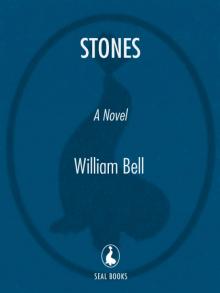 Stones
Stones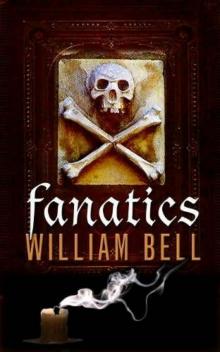 Fanatics
Fanatics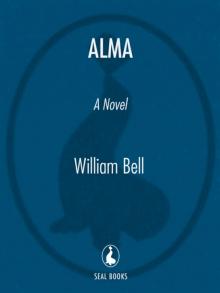 Alma
Alma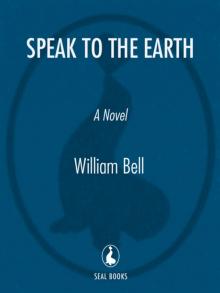 Speak to the Earth
Speak to the Earth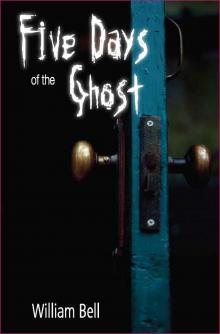 Five Days of the Ghost
Five Days of the Ghost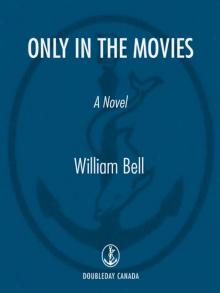 Only in the Movies
Only in the Movies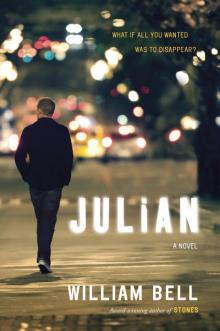 Julian
Julian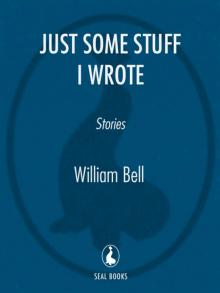 Just Some Stuff I Wrote
Just Some Stuff I Wrote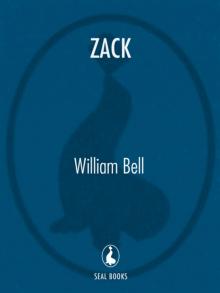 Zack
Zack Forbidden City
Forbidden City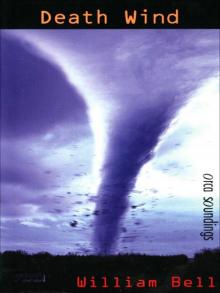 Death Wind
Death Wind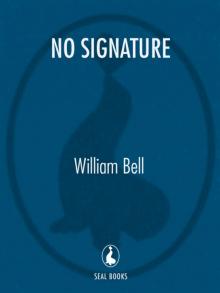 No Signature
No Signature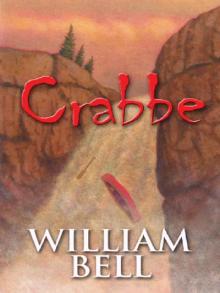 Crabbe
Crabbe